1. Bueren Mountain, Belgium
Bueren Mountain is not a real mountain. It is a 374 steps long staircase in
Liège. The stairs were built in 1881 to allow soldiers on top of the hill to go down to the centre without having to walk through the dangerous alleys.
The structure is named for 15th century aristocrat Vincent de Bueren, from what is now the the Dutch province of Gelderland, who defended the city of Liège from an attack by the Duke of Burgundy. A largely destroyed citadel, not far from the Bueren Mountain, was formerly a stronghold of the city’s defences.
When you reach the top you’ll be rewarded with a great view of the city and the Meuse river. [link, map]
2. Stairs Above the Sea, Spain
This beautiful staircase is located on the island Gaztelugatxe in Spain. Gaztelugatxe is a tiny islet on the coast of Biscay belonging to the municipality of Bermeo, in Basque Country (Spain).
It is connected to the mainland by a man made bridge. On top of the island stands a hermitage that dates from the 10th century, although certain discoveries indicate that the date might be the 9th century.
The hermitage is accessed by a narrow path, crossing the solid stone bridge, and going up 237 steps, although other sources cite the number as 229 or 231 steps.
The best seasons to visit are spring and autumn, in order to enjoy the peace of the setting, as summers are typically crowded. [
link,
map]
3. Spiral Staircase in Taihang Mountains, China
A 300-foot (91,5m) staircase along a mountain face in the Taihang Mountains in Linzhou, China, offer the thrill of mountaineering without the danger. The hike up the stairs provides a great experience one will not easily forget, and no special gear is needed.
“Here the wind blows and batters them, the birds fly past them, the stairs creak. It is a lot more authentic than an elevator,” an official said.
However, due to safety and health concerns, the management has qualifications before anyone is allowed to ascend. Climbers must be under 60 years of age and are asked to fill out a form confirming that they do not have heart or lung problems. [link, map]
4. Awaji Hyakudanen, Japan
«Awaji Yumebutai» (or in English – «Stage of Dreams») is a complex array of buildings and other areas located on Awaji Island in Hyōgo Prefecture, Japan.
One of the of the gardens of Awaji Yumebutai is the 100-level garden (or in Japanese – hyakudan’en), the garden consists of 100 squares of terraced smaller gardens.
Awaji Hyakudanen was built as a memorial of the Great Hanshin earthquake (1995) on the side of a mountain that had been half taken away in the early 90′s for use as sea-fill during construction to build artificial islands in Osaka Bay (one of them is the Kansai International Airport). [link, map]
5. Moses Bridge Stairs, Netherlands
Early 17th century Fort de Roovere is surrounded by a moat and was originally built without a bridge. Yet, as part of a recent restoration program, it required the addition of an access bridge.
Out of respect for the fort’s original island status, Netherlands-based RO&AD Architecten constructed the Moses Bridge Stairs, a discreet “sunken” bridge that sits flush with the line of the soil and the water. The result is an almost invisible bridge that partially immerses pedestrians into the moat.
Originally, an inundation zone to the north provided an area that could be flooded with water deep enough to make enemy advance on foot precarious, yet shallow enough to rule out the effective use of boats.
Today, two dams sit at either end of the mote, ensuring that when the water level rises, it spills over the dams and not into the bridge. [link, map]
6. Canyon Steps, Ecuador
This famous Canyon Staircase is located next to the waterfall
Pailon del Diablo in Ecuador. The Paílón del Diablo is a fairly large waterfall (located on the Pastaza River) just 30 minutes away from the town of Baños in Ecuador. It is considered to be one of the most popular attractions in the area. While visiting Ecuador one should not miss this wonderful twisting stairs/steps. [
link,
map]
7. Chand Baori, India
Chand Baori is a famous stepwell situated in the village of Abhaneri near Jaipur in the Indian state of Rajasthan.
It was constructed in 800 CE. Its 3500 narrow steps in 13 stories extend 100 feet (30 m) into the ground, making it one of the deepest (and largest) stepwells in India.
The state of Rajasthan is extremely arid, and the intent and final structure of Chand Baori was intended to conserve as much water as possible. At the bottom of the well, the air remains 5-6 degrees cooler than at the surface, and Chand Baori was used as a community gathering place for locals during periods of intense heat. [
link,
map]
8. Santorini Stairway, Greece
In 1715, the island inhabitants built a rough stairway into the side of the sheer mountain so they could hike to the summit. Before long, donkeys were enlisted to help carry cargo and passengers to and from the ships and town. In 1930, the stairway was improved and more donkeys were added to aid in the assent and decent. Finally, in 1979, a cable car was installed to automate the process – but the most fun ride is still by donkey.
The zigzag stairway from sea to city is paved in stone, and because of the many switchbacks, the distance from one end to the other is 1300 meters or 4,265 feet. There are 657 four-inch (10 cm) tall steps on the walkway, and this natural stair-master provides a very good workout on a sunny day. [link, map]
9. Schlossberg Stairs, Austria
The main attraction in Graz is the Schlossberg (Clock Tower). It stands proud and is visible from all points in the city. Tourists and local visitors need to climb to the top to see the fabulous view of Graz and the surrounding area. The Schlossberg Stairs are located at the far end of Schlossbergplatz.
The impressive stairs are cut into the rockface of the Schlossberg Hill and doubles back and forth up to the top of the hill and clock tower. Great views over the city can be enjoyed during the climb up the steps. The 260 steps of the stairs are a much more enjoyable (although tiring!) way to reach the top of the Schlossberg. For the less energetic, you can take the Schlossbergbahn or lift. [link, map] 10. Potemkin Stairs, Ukraine
The Potemkin Stairs is a giant stairway in Odessa, Ukraine. The stairs are considered a formal entrance into the city from the direction of the sea and are the best known symbol of Odessa.
Officially known today as the Primorsky Stairs, they were originally known as the Boulevard steps, the Giant Staircase, or the Richelieu steps. The top step is 12.5 metres (41 ft) wide, and the lowest step is 21.7 metres (70.8 ft) wide. The staircase is 27 metres (88.5 ft) high, and extends for 142 metres (465.9 ft), but it gives the illusion of greater length. [link, map]
11. Haiku Stairs, Hawaii, USA
The Haʻikū Stairs, also known as the Stairway to Heaven or Haʻikū Ladder, is a steep hiking trail on the island of Oʻahu.
The trail began as a wooden ladder spiked to the cliff on the south side of the Haʻikū Valley. It was installed in 1942 to enable antenna cables to be strung from one side of the cliffs above Haʻikū Valley to the other.
A building to provide a continuous communication link between Wahiawā and Haʻikū Valley Naval Radio Station was constructed at the peak of Puʻukeahiakahoe, elevation about 2,800 feet (850 m).
In 2003, the stairs were repaired, costing the city $875,000. As of early 2012, land usage rights issues have not been resolved. The City and County of Honolulu has stated that there is currently no plan to open the stairs for public use, citing liability concerns. [
link,
map]
12. Bridge-Stair, Switzerland
The bridge over the Traversinertobel, a side valley of the Via Mala, is the latest structure of this kind designed by engineer Jürg Conzett and his associate Rolf Bachofner.
They solved the problem of connecting two different elevations over the gorge by creating a staircase. The staircase replaces a rope bridge for hikers that was wiped out by a rock slide. This suspended footbridge spans a distance of 56 metres, with a difference in height of 22 metres (72ft) between the two ends. [link] Bonus 1: Staircase as an Expression of Art in Germany
This 21-metre-high (69 ft) sculptural walkway is named Tiger and Turtle – Magic Mountain and is positioned upon a hilltop in Duisburg, Germany. A staircase winds across the surface of the steel structure, which spirals around itself just like the fairground ride.
Visitors can climb onto the sculpture where it meets the ground, but a loop-the-loop at the centre prevents anyone being able to walk a full circuit.
Since 13th of November the large-scale sculpture “Tiger and Turtle – Magic Mountain” by Heike Mutter and Ulrich Genth is accessible for the public.
The visitor can climb the art work by foot. Although the course describes a closed loop, it is impossible to accomplish it as the looping emerges to be a physical barrier. On top, at the highest point of the sculpture – 21 meters (69 ft) above ground – the visitor is rewarded with an extraordinary view over the landscape of the Western Ruhr. [link, map] Bonus 2: Staircase as an Expression of Art in UK
The Universe Cascade is located on a slope that runs down the back of the Gardens of Cosmic Speculation (Dumfries, Scotland), forming an axis between the snail mound and the rear of the house and consists of a steep series of steps.
A giant rock and a bench for contemplation were installed at each level for individuals to use as they climbed steeply upwards.
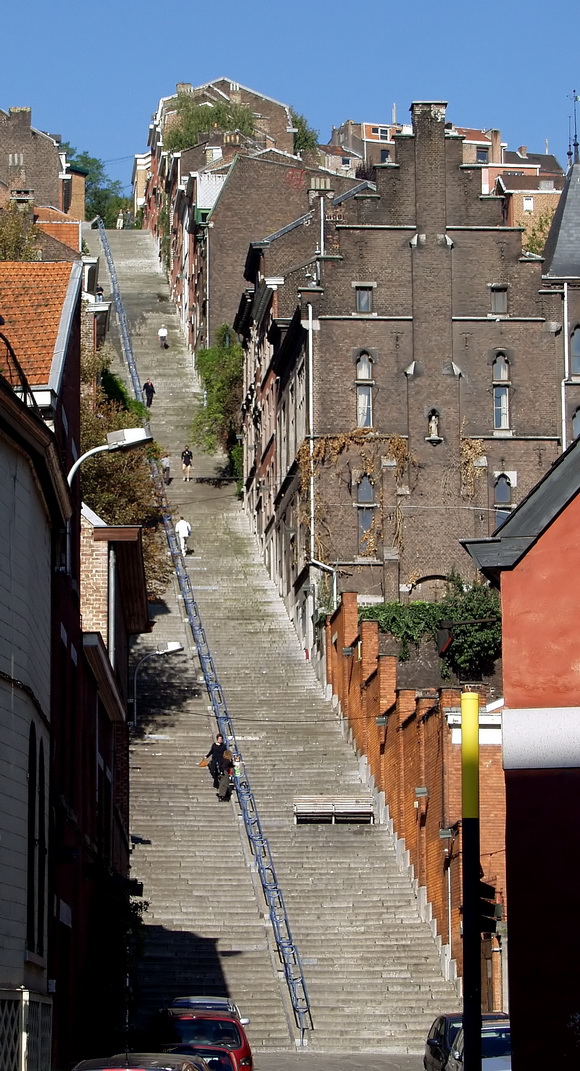
.jpg)

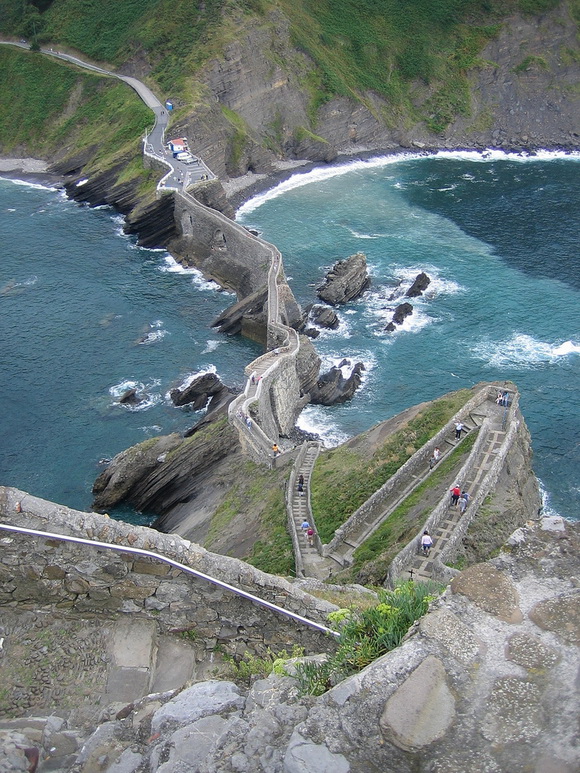
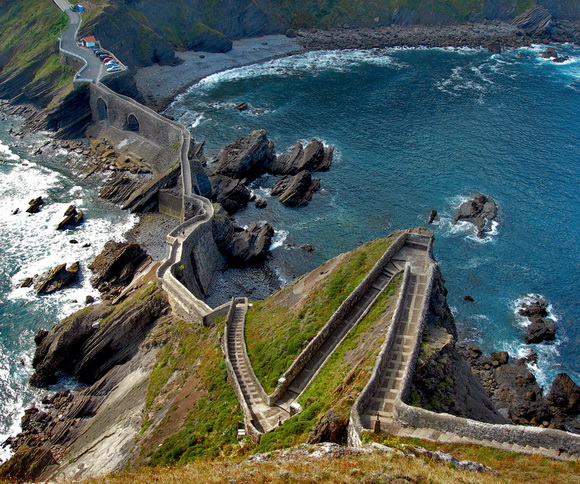
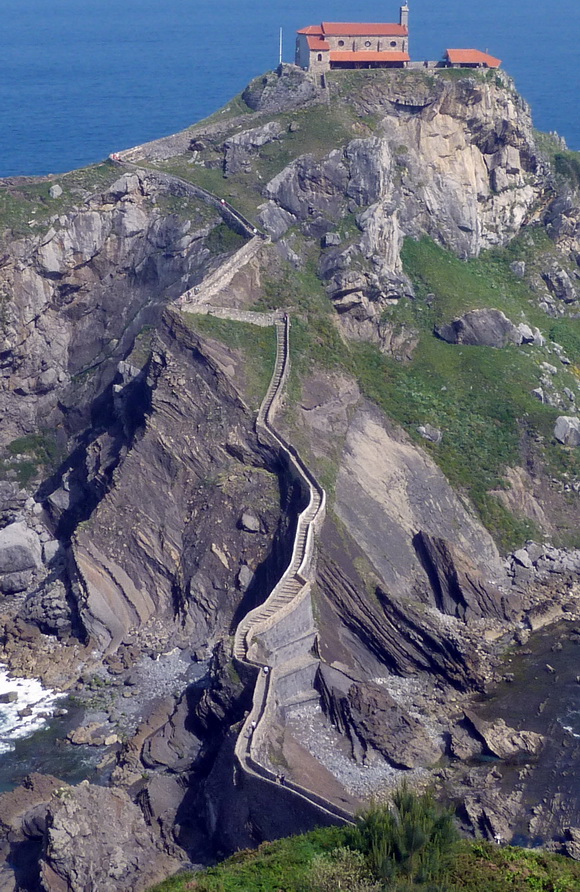
.jpg)
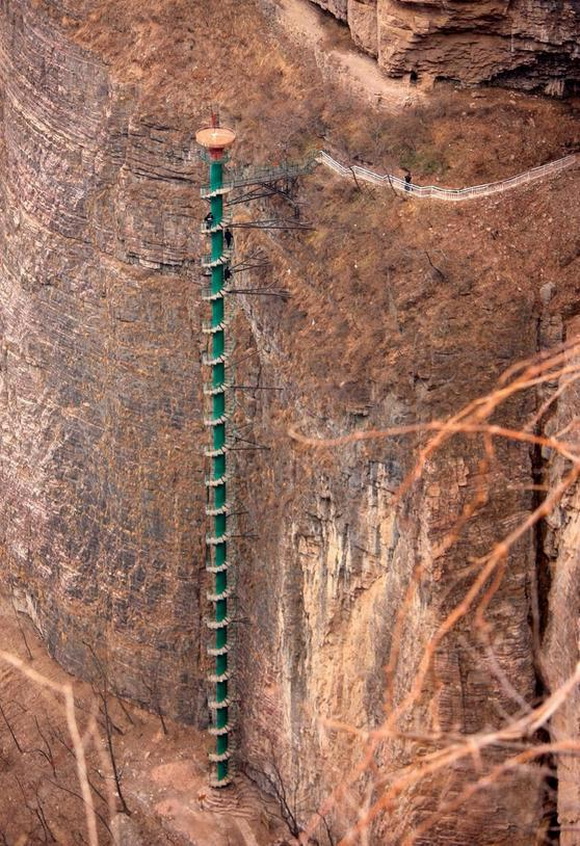
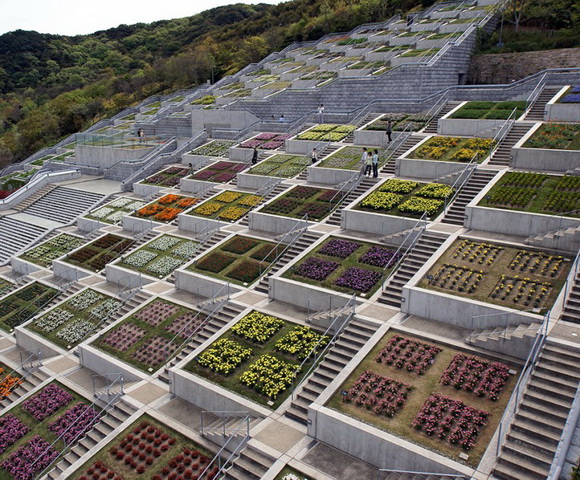
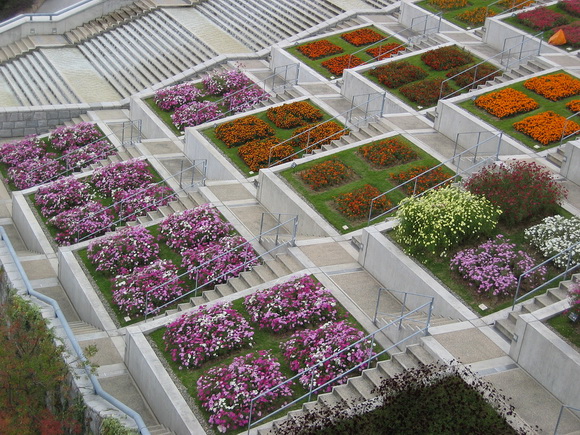
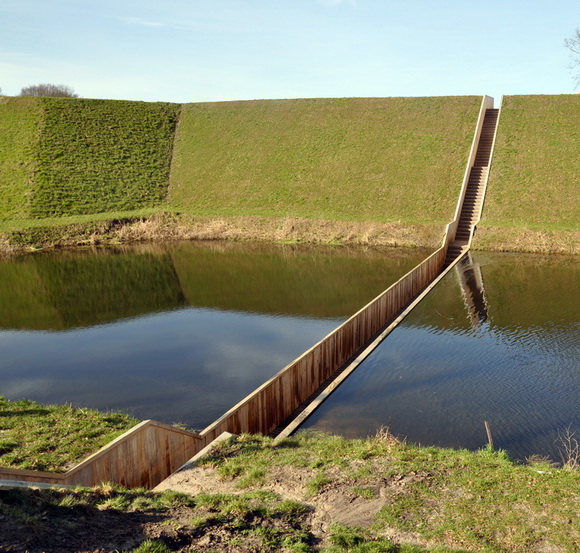
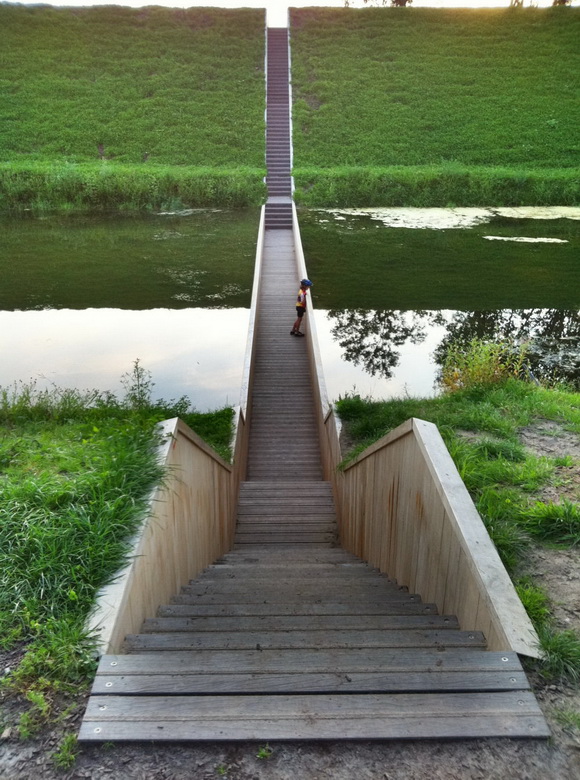

.jpg)
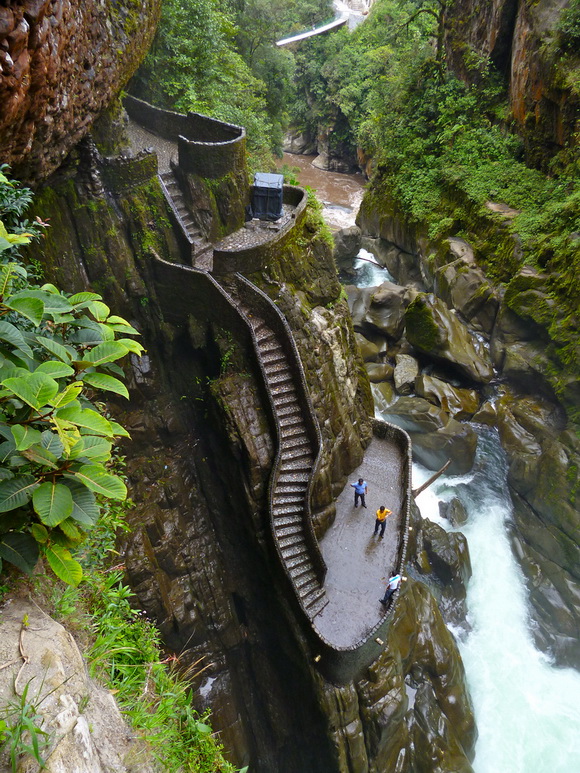
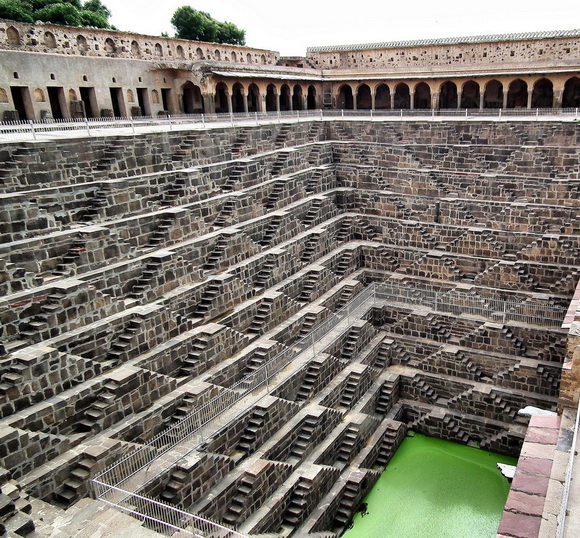
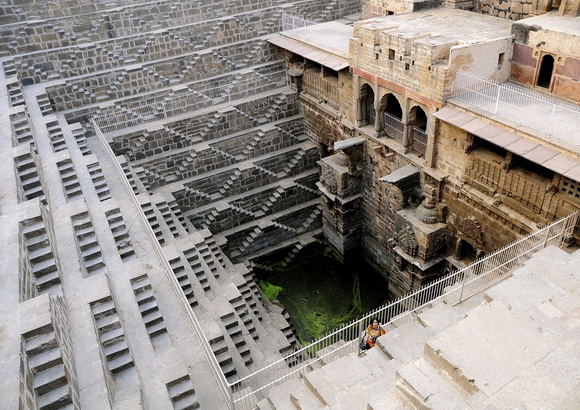
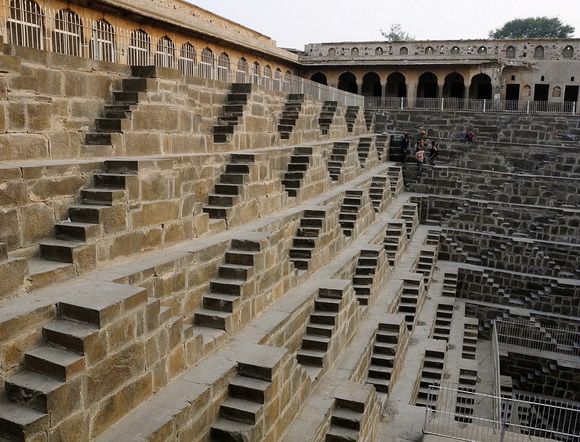

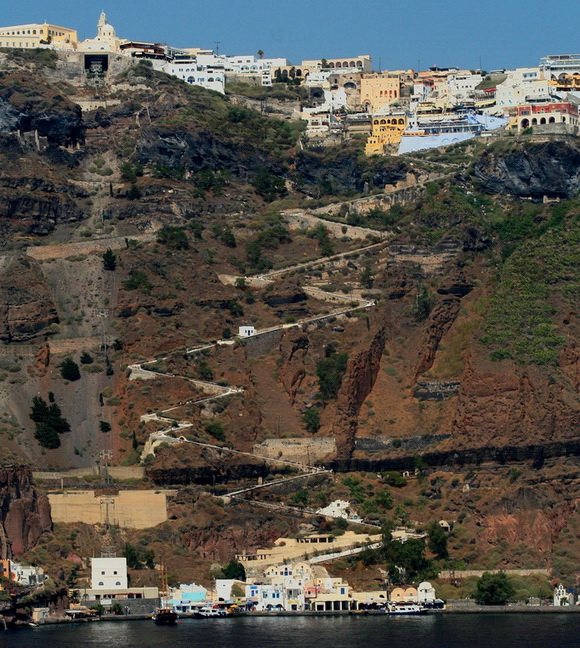
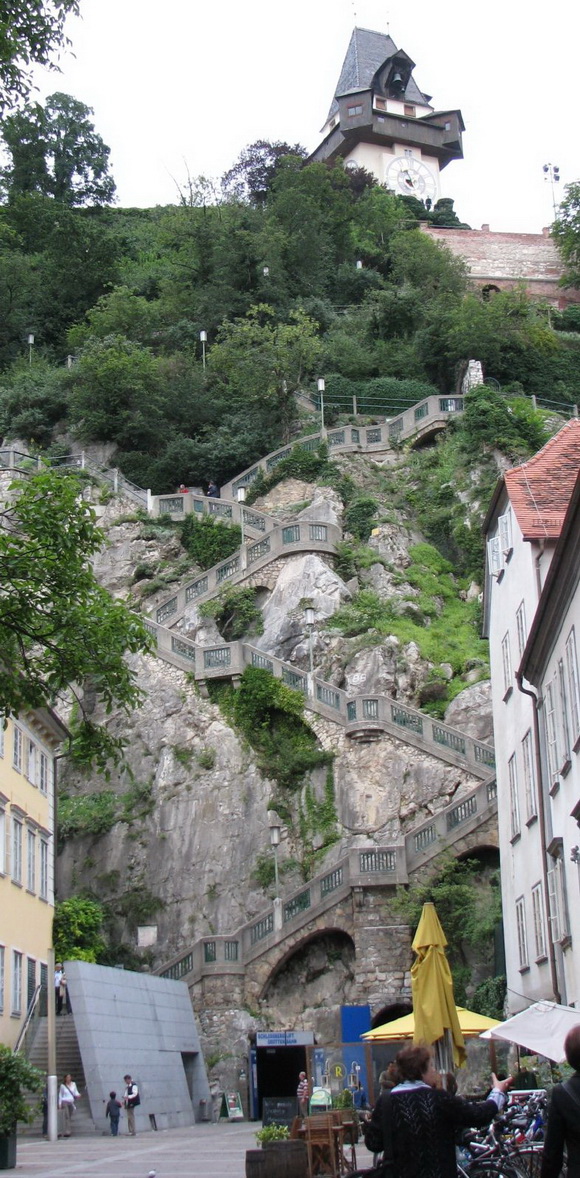
.jpg)
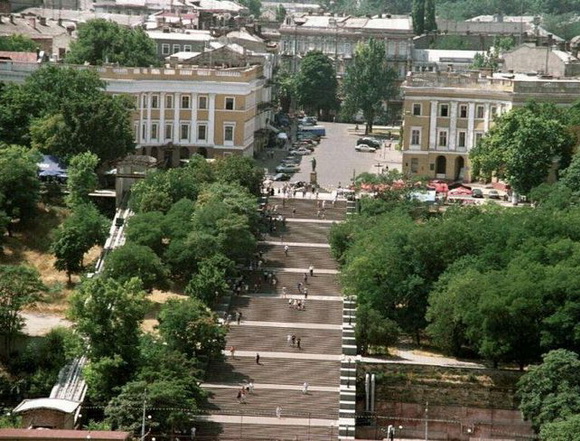
.jpg)
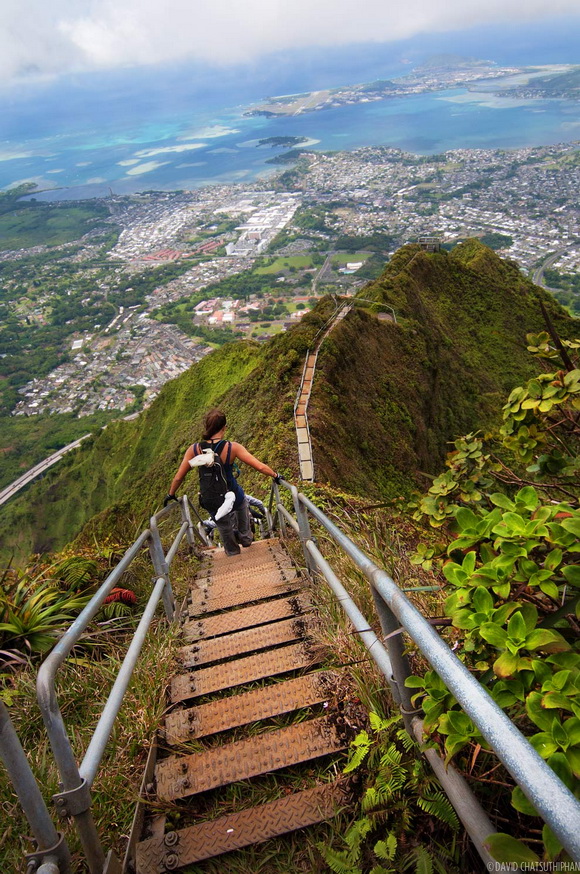
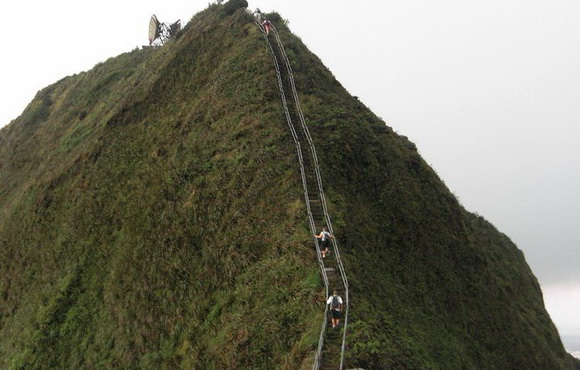
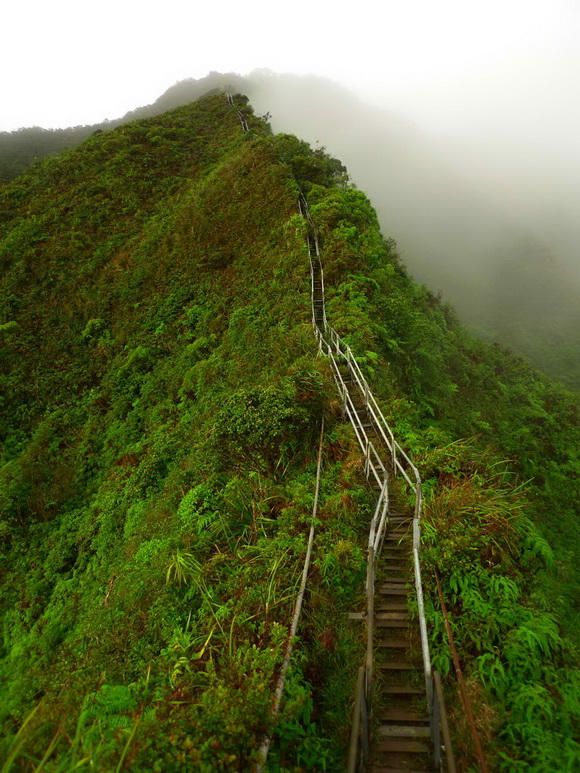

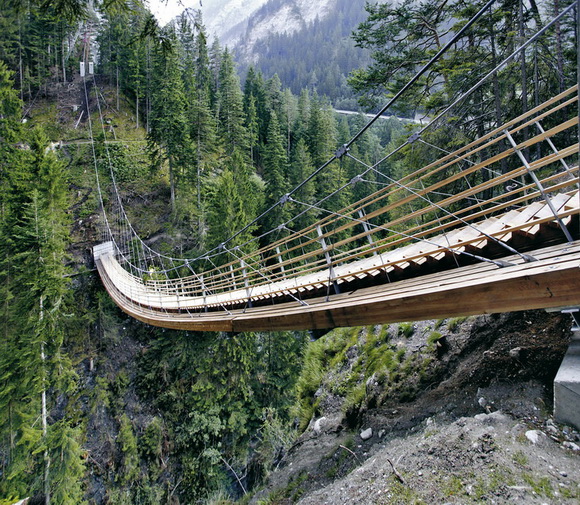

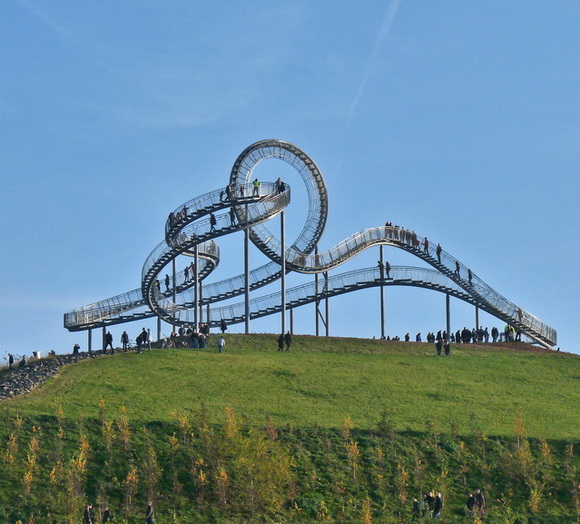



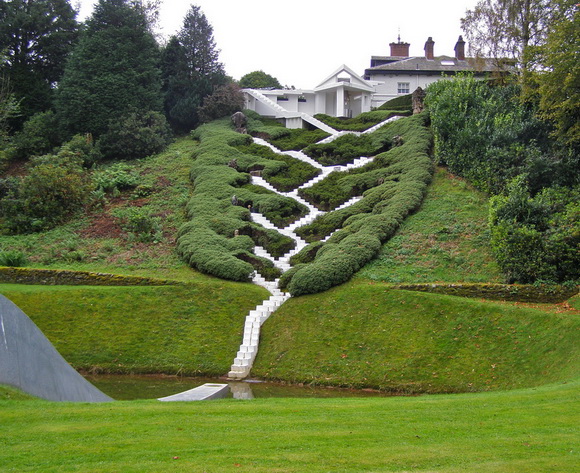
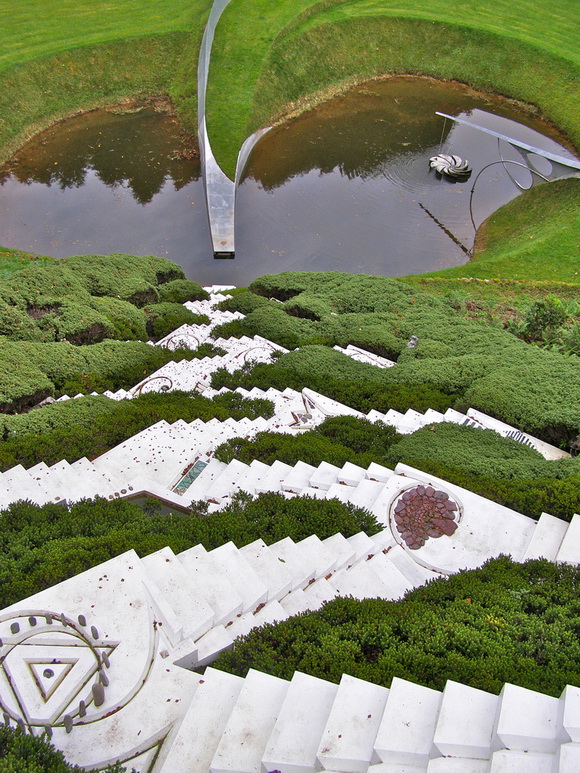
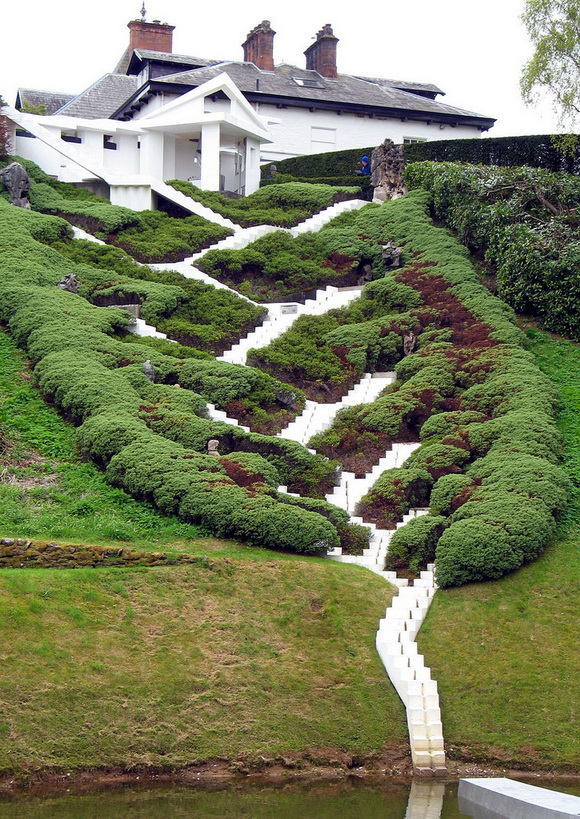

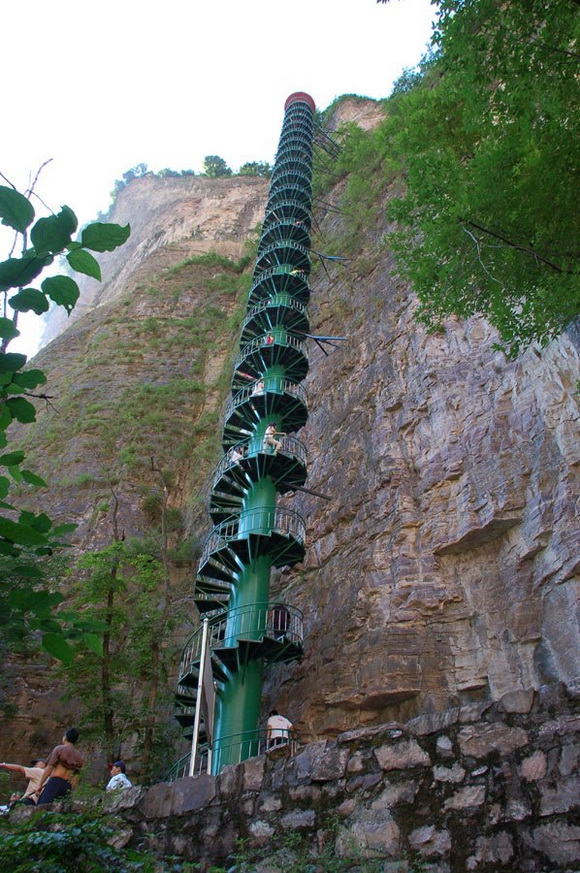
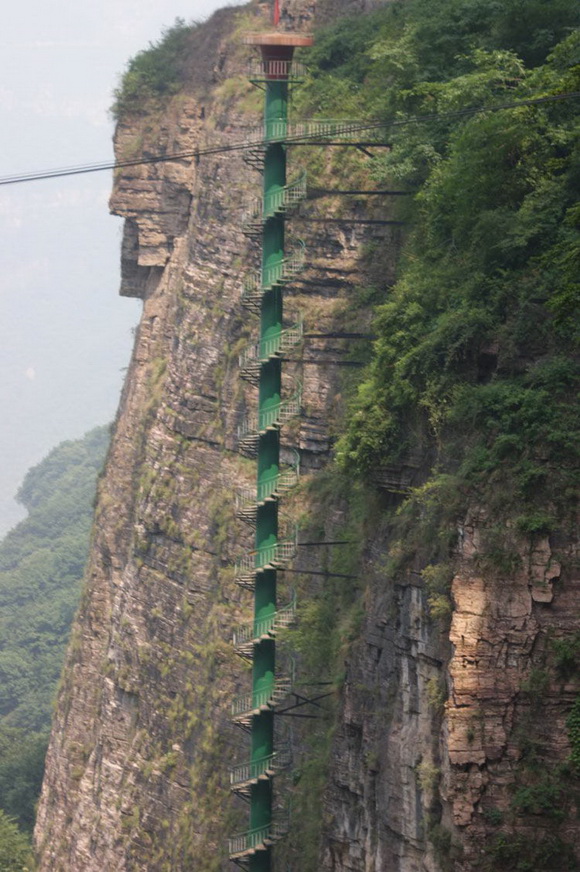
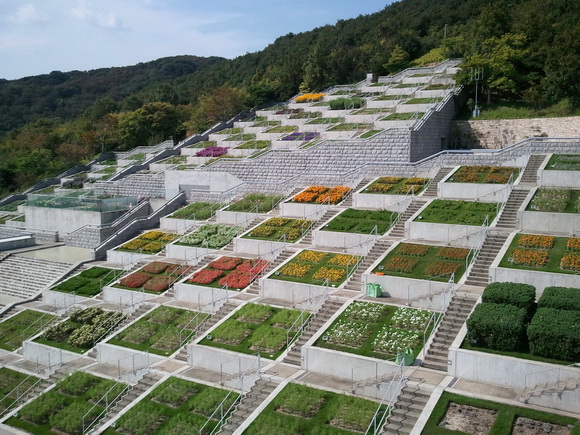
IMPRESIONANTES fotografías.Muchas gracias don Juan Francisco